

 ©
Felix Brinker
©
Felix Brinker
In the 2022 summer term, Anna-Lena Oldehus and master students of the English Department at the Leibniz University of Hannover (LUH) conceptualized a student project that was later realized in the context of the annual WortLaut festival (fig. 1) – an event that aims to showcase Hannover’s literary, linguistic, and intercultural diversity and seeks to inspire enthusiasm about language, reading, and words. The festival took place in October 2022 and offered an opportunity for Hannover residents to actively shape the festival program – and also for the students participating in Anna-Lena Oldehus’ independent studies course.
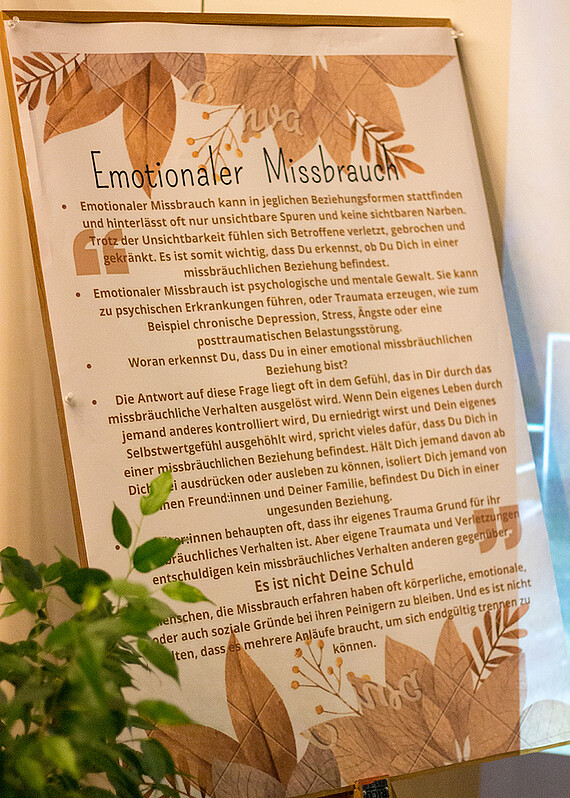
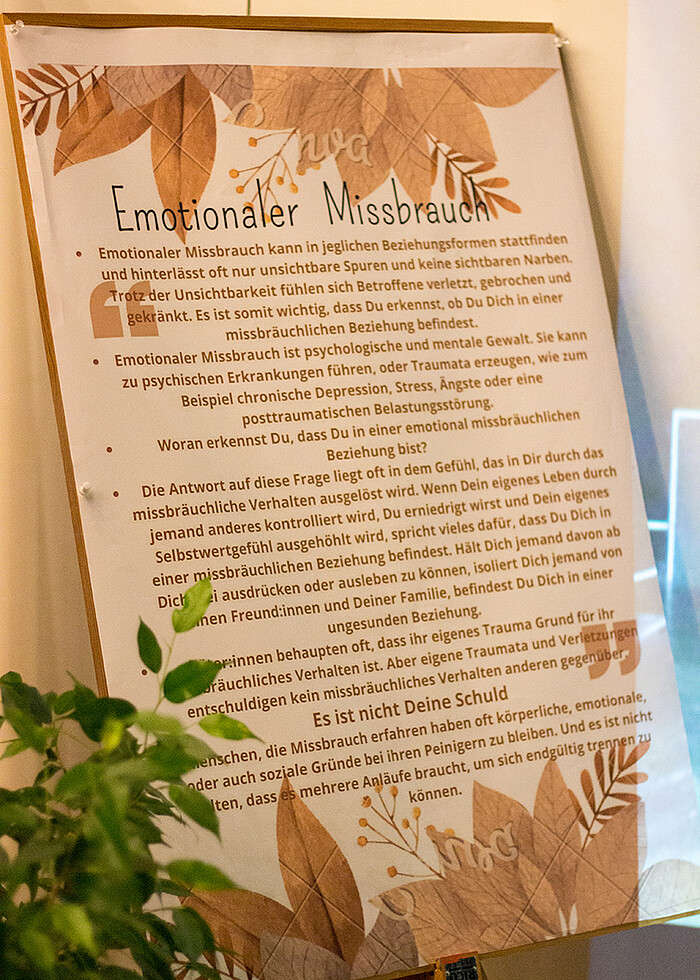
 ©
Felix Brinker
©
Felix Brinker
Another project explored the relationship between academia and power by collecting snippets of conversations of about work from academics all over Germany. This project positioned itself in the context of the grassroots initiative #IchBinHanna (“I am Hanna”) that has been addressing and publicizing the precarious working conditions in German academia since 2021. The hashtag emerged in response to a promotional video by the German Federal Ministry for Education and Research (BMBF) explaining the alleged benefits of the notorious Wissenschaftszeitvertragsgesetz (the Academic Fixed-Term Contract Act). Under #IchBinHanna, thousands of academics have reported their experiences with fixed-term contracts in German academia. Many of them shared that permanent positions at German universities have become extremely scarce and are mainly available to candidates at the professorial level. Yet, highly skilled scholars and scientists are still needed to do teaching, research, and lab work. As a result, these specialized, highly educated researchers at the doctoral and postdoctoral levels find themselves in a cycle of moving from institution to institution without ever signing a permanent contract. The snippets presented at the event raised awareness for the #IchbinHanna campaign and the underlying problems by connecting them to some personal thoughts and anecdotes of academics who struggle with work under the present conditions.
Some student projects also actively involved the visitors of the exhibition. For one project, for example, guests were invited to enter a room full of mirrors. To do so, visitors had to pass through a black curtain decorated with notes that represented insecurities, fears, and self-doubts that had to be actively pushed aside in order to reach the safe place within (fig. 4). Once inside, visitors were invited to write down on a sticky note what they loved about themselves or something they were proud of and leave it on one of the mirrors (fig. 5). In this manner, the installation invited visitors to physically leave negative thoughts behind and step into a safe space in which they could feel accepted just the way they were.


 ©
Felix Brinker
©
Felix Brinker

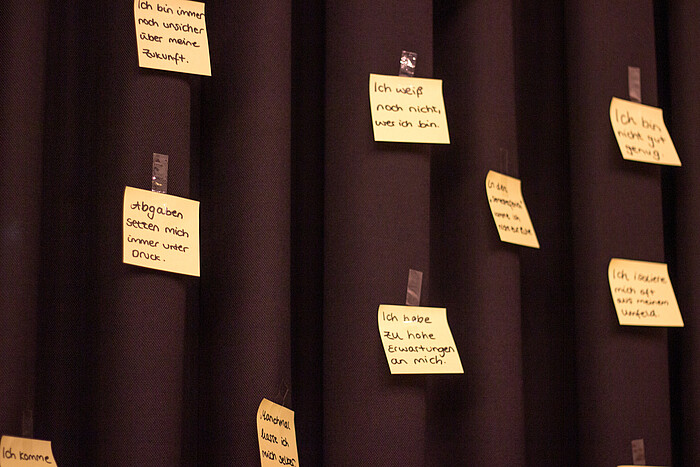
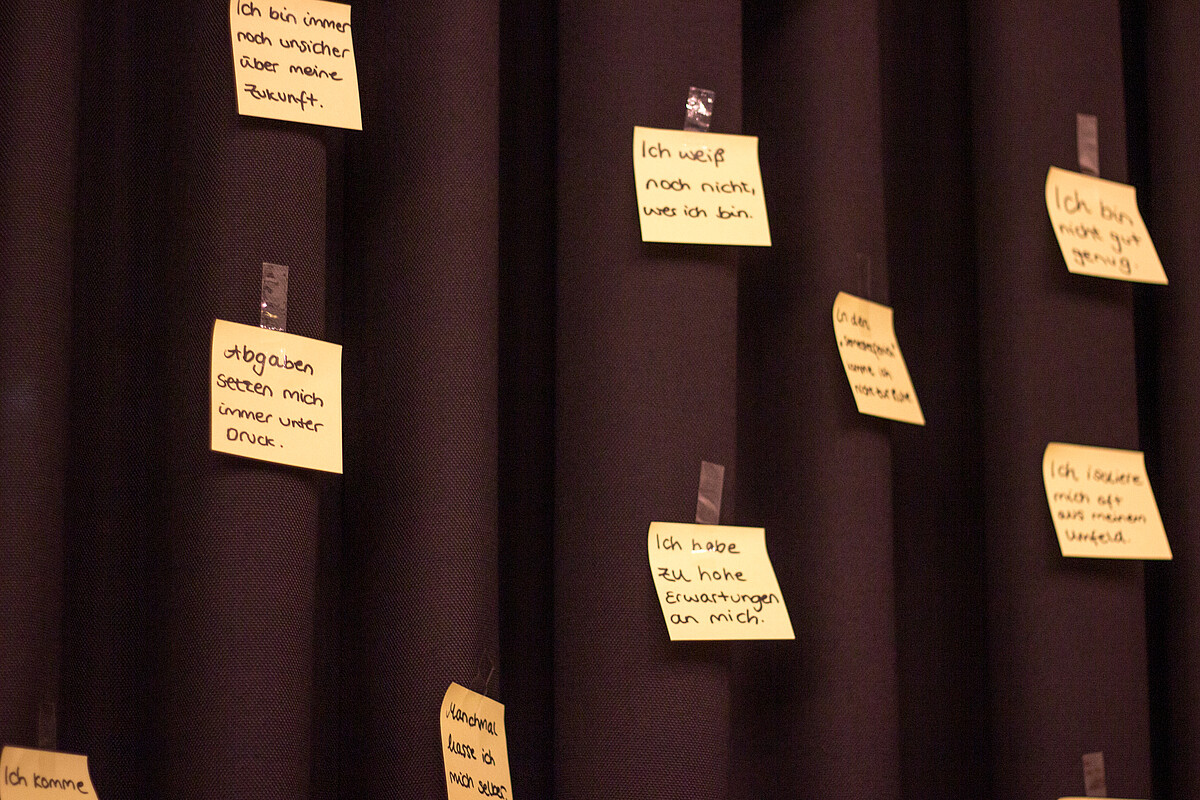 ©
Felix Brinker
©
Felix Brinker
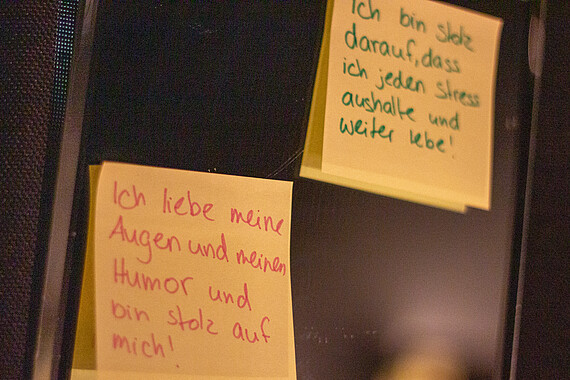

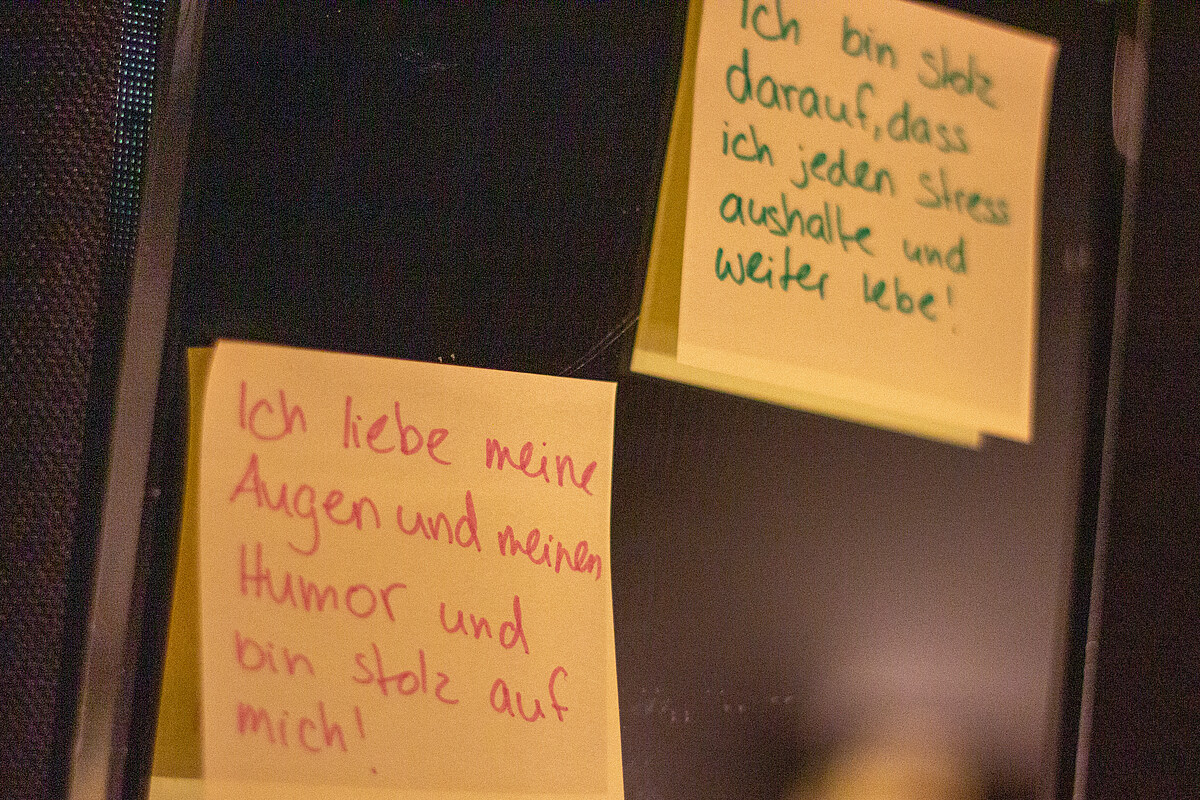 ©
Felix Brinker
©
Felix Brinker
Some of the questions about the relationship between love, power, and academia raised by the students’ installations were also picked up again in the final event of the evening: an interview that Anna-Lena Oldehus conducted with porn scholar Madita Oeming (read the interview here).
Copyright (c) 2023 Elisa Bongartz, Evelyn Dossa, Mruga Kelkar, and Celina Plaß.
This work is licensed under a Creative Commons Attribution 4.0 International License.


